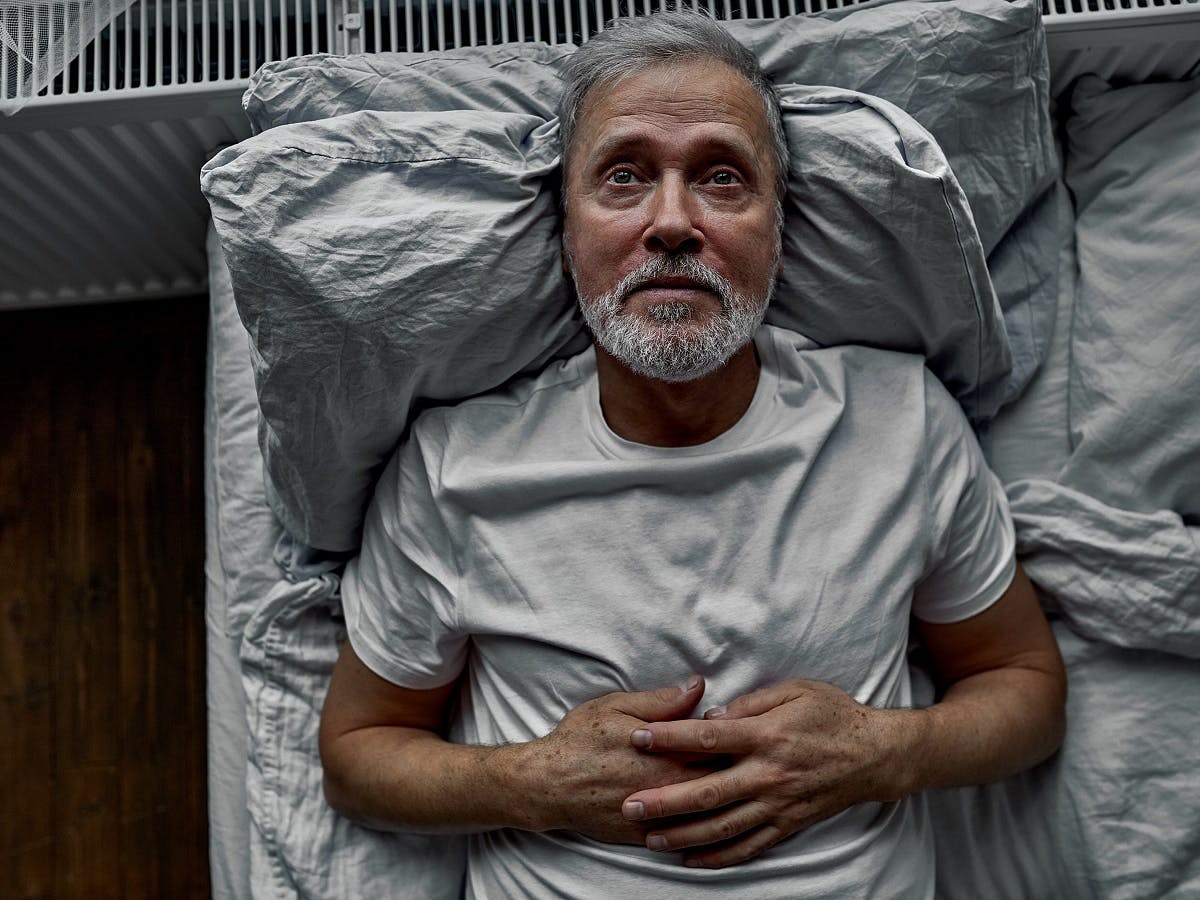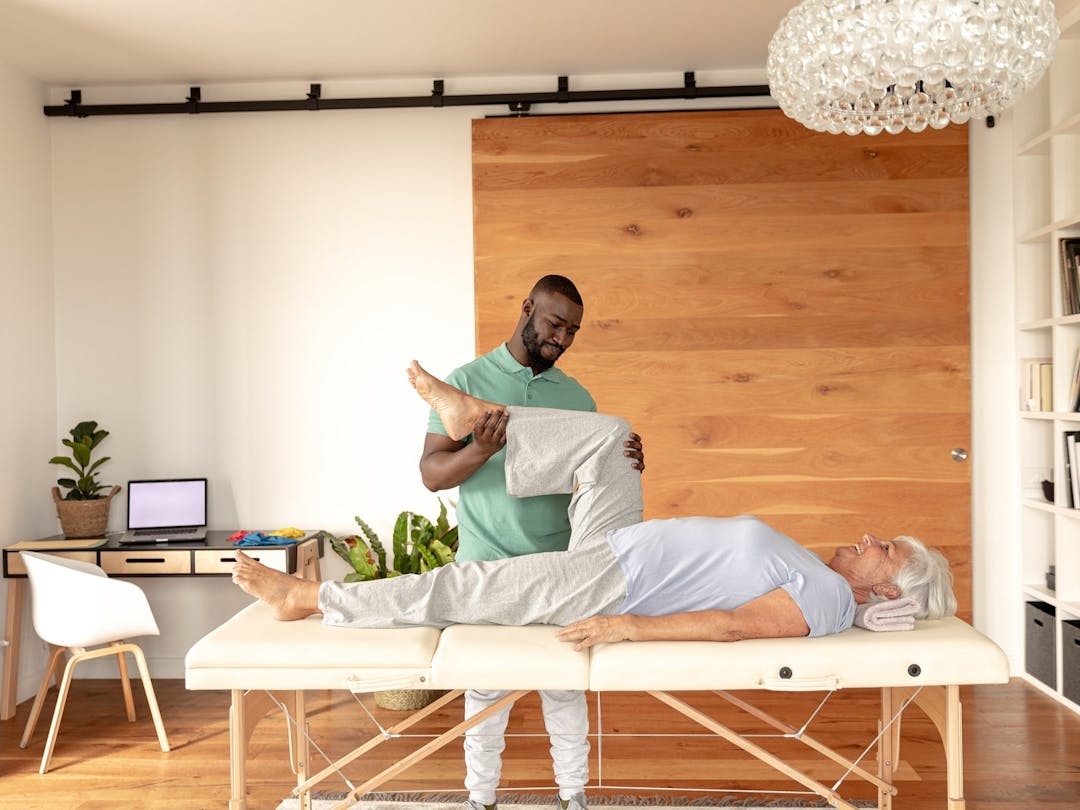
Lack of sleep has been consistently linked to weight gain because of its effects on appetite-regulating hormones.
Have you ever noticed that when you’ve slept poorly, you’re more likely to reach for unhealthy snacks like donuts or potato chips, rather than fruits and vegetables?
That’s because a lack of Zzs has long been linked to eating more. But what exactly is it about inadequate sleep that makes you more susceptible to putting on the pounds?
"There is no doubt that insufficient sleep promotes hunger and appetite, which can cause excessive food intake resulting in weight gain," Eve Van Cauter, director of the Sleep, Metabolism and Health Center at the University of Chicago, told USA Today. "Our body is not wired for sleep deprivation. The human is the only mammal that does this."
Sleep and the hormone double-whammy
So what is it about being tired that leads to weight gain? Well, a lot of it has to do with your body’s chemistry.
We have a hormone called ghrelin, which is also known as the hunger hormone. When you haven’t had a good night’s sleep, that hormone spikes, signaling to your body to eat more.
Meanwhile, acute sleep deprivation also decreases your level of leptin, another hormone. Leptin is what makes you feel full after eating.
When you haven’t slept well, both of these hormones get out of whack. You end up craving more food – but being less satisfied by what you eat! How’s that for unfair?
Inadequate sleep makes you crave junk
But it gets worse. Not only do you eat more when you’re tired, but your food choices tend to be worse, too.
If you’re worn out, you’re less likely to be mindful of what you’re eating, perhaps just reach for something fast — fried food, a bag of chips, a liter of soda — rather than taking the time to make, say, a salad. Those foods give a quick hit of energy, but soon you’ll crash and feel zonked again. Scientists have found that people who didn’t get a good night’s sleep ate more calories in a day than those who were more rested and were more likely to reach for fatty foods than healthy foods.
Too tired to hit the gym
Once you’re back to feeling drained and tired, are you going to feel like exercising? Probably not. But even if you do manage to pull on those sneakers and hit the gym, a lack of sleep has been — unsurprisingly — shown to negatively affect your exercise performance.
Of course, here and there, a bad night of sleep, a day of bad eating, or missing the gym won’t make the pounds suddenly go up on the scale, but if it happens regularly, weight gain might follow.
Tips to get more sleep
If you’re having a hard time getting a good night’s rest, here are a few tips that’ll encourage your body to go to sleep and stay asleep through the night, so that you’re bright-eyed and energized in the morning.
Have a consistent sleep schedule
That means try to go to bed at the same time each night and wake up at the same time each morning. This will help your body get into a good circadian rhythm.
Shoot for 7 to 8 hours of sleep each night
The Sleep Foundation notes that 7 to 8 hours of sleep is an optimal range for most people 65 years and older.
Limit food, caffeine, nicotine, and alcohol right before bed
All of these can lead to a disrupted sleep. (While alcohol can make you feel tired, it’ll often cause you to wake up a few hours later.)
Sleep in a dark, cool bedroom
Try to keep your room from getting too hot. (According to the Sleep Foundation, an optimal room temperature for sleeping is 60 to 67 degrees Fahrenheit.) And get blackout curtains if a lot of light tends to seep into your room, whether from morning twilight or outside street lights.
Exercise and get outside
Staying active has been shown to help you fall asleep faster and stay asleep, even proving in one study to be an effective treatment for chronic insomnia.
Ditch the phone
Research shows that looking at your smartphone in bed has been linked to slowed and interrupted sleep. It’s best to leave your phone in another room, so that it’s not the first thing you reach for before bed or when you wake up.
Address your stress
What is it about the middle of the night that gets your thoughts and worries racing? Dealing with your anxieties in the daytime, through meditation, exercise, breathing, and exercise, will help you sleep through the night. Journaling your thoughts and worries before bed, while also noting some things for which you’re grateful, will also help to put you at ease at bedtime.
Your Medicare plan may also be able to help! Certain Medicare plans offer coverage for exercise classes as well as therapy to help you manage stress. To find out if yours does, or to shop for a new Medicare plan that fits your needs, check out our easy-to-use plan finding tool.
Additional Resources
How Poor Sleep Impacts Your Health
Internal Website Link
Does Medicare Pay for CPAP Machines?
Internal Website Link
Are Weight Loss Programs Covered By Medicare?
Internal Website Link



